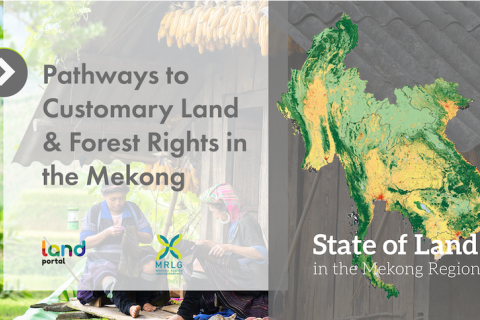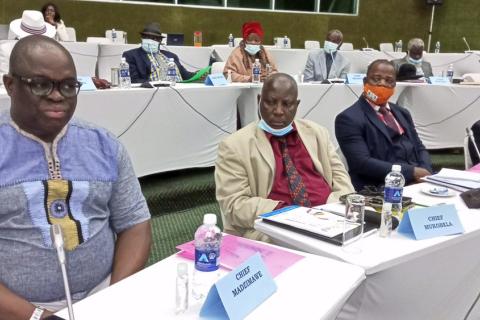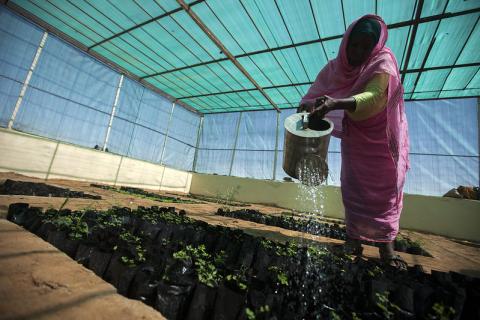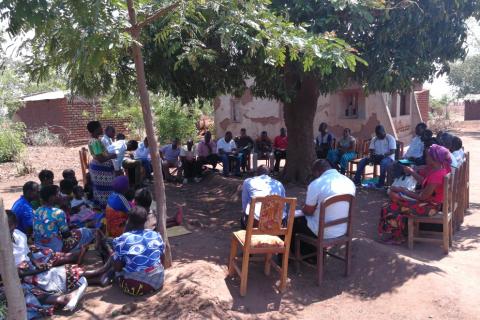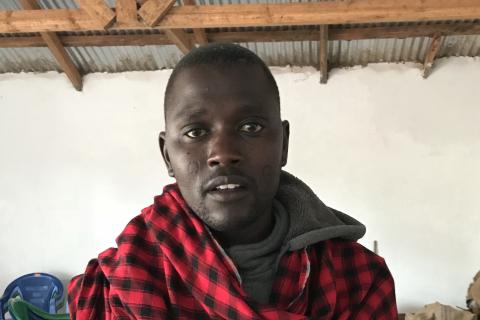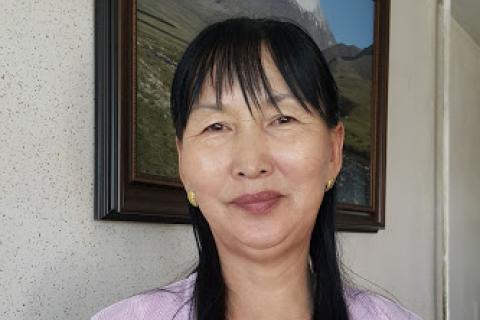Protecting Biodiversity Hinges on Securing Indigenous and Community Land Rights
In 2022, countries reached a historic agreement to halt biodiversity loss by conserving at least 30% of land and water by 2030. This marked a critical step toward protecting the world's precious remaining species and ecosystems. But that's not all: The Global Biodiversity Framework, as it's known, also explicitly calls on countries to recognize and uphold Indigenous Peoples and local communities' rights in their conservation strategies.
Protecting the Roots of a Sacred Tree
With USAID support, an Afro-Colombian community received a collective land title, guaranteeing ownership of their traditional lands.
Webinar Recap : Pathways to Customary Land & Forest Rights in the Mekong
Traditional authorities need a clearer role in land governance
Traditional authorities in Zambia complain that the government does not consult them when land is allocated for investment projects, while communities say chiefs are neglecting their interests. Jesinta Kunda of Zambia Land Alliance says more clarity is needed on the role of traditional authorities, in law and practice, to ensure large-scale investments in agriculture, mining and other sectors are governed better – particularly in light of the rising demand for critical minerals found in Zambia. She urges the government, traditional leaders and citizens to seize the opportunities presented by current legal reforms in Zambia to create change.
Incorporating Climate Considerations Into Investment Assessment Processes: Guidance for National and Local Governments
Climate change poses an existential threat to ecosystems, with potentially far-reaching impacts on agriculture, forestry, wind and solar energy, and other land-based investments. These investments can also further exacerbate detrimental climate change impacts if they are not sustainably implemented.
From Pledges to Progress: Financing Climate Initiatives Beyond COP28
Two years after international donors pledged $1.7 billion to Indigenous Peoples at COP26, a recognition of their crucial role in protecting biodiversity and carbon capture, there has been good progress in preparing the systems needed for the money to be disbursed.
Webinar Recap: Traditional Authorities in Africa and Their Role in Land-Based Investment Governance
In a thought-provoking webinar moderated by Nolundi Luwaya, Director of the Land and Accountability Research Centre at the University of Cape Town, experts from across Africa convened to unravel the complexities of the role of traditional authorities in land-based investment governance. This event brought to light the unique challenges and strategies employed by traditional authorities in managing land-based investments.
People listen to me now
By Rosa Olokweni, Gender and Land Champion, WOLTS Project Tanzania
Before HakiMadini and WOLTS came to Mundarara, it was as though women in our village were sleeping. None of us was aware of our rights to land, many of us were mistreated by our husbands and we never spoke in meetings.
Mongolia needs fewer cows for better pastureland
Odgerel describes the changes he is making to tackle land degradation in his herding community since becoming a gender and land champion.




